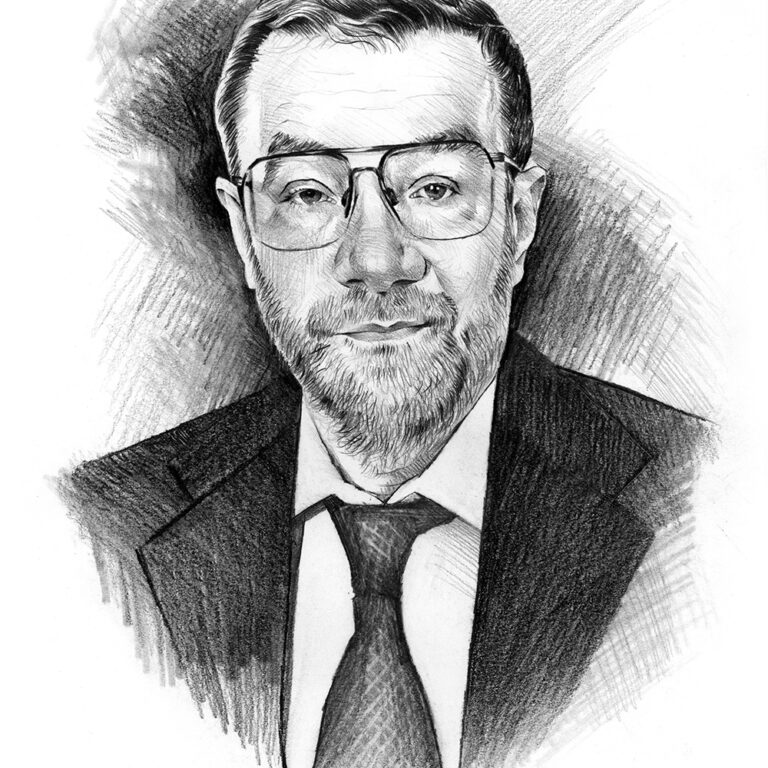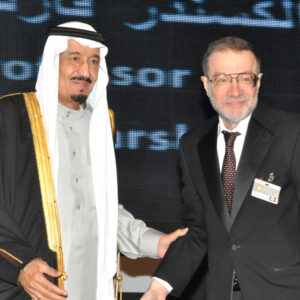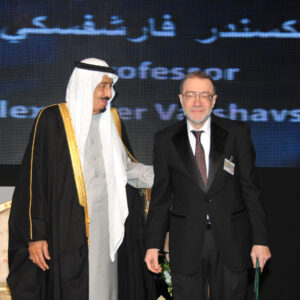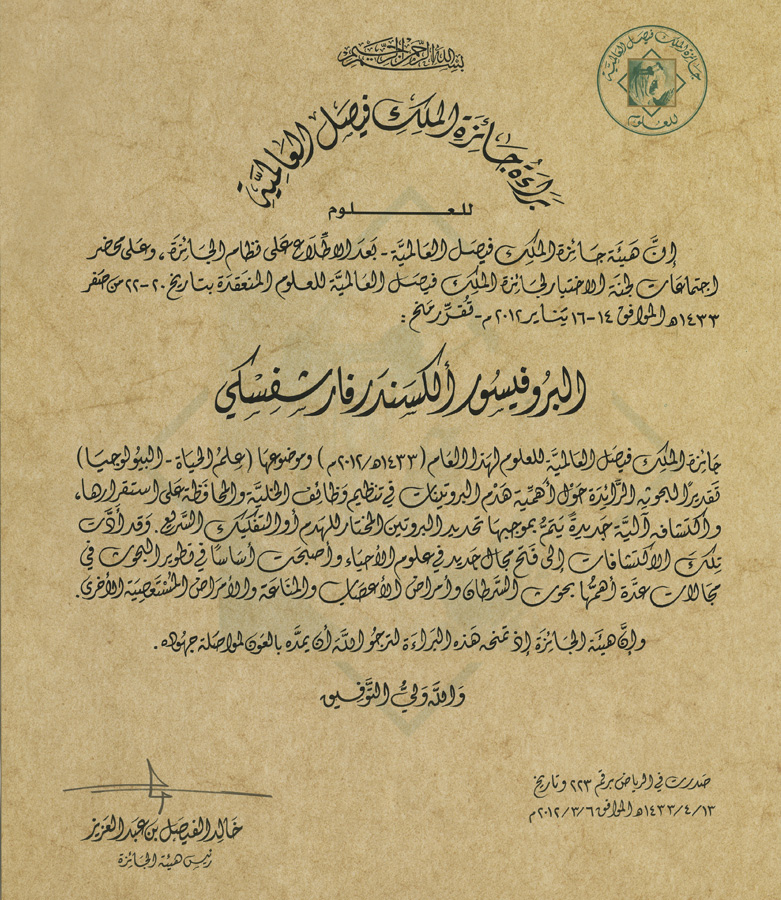

Professor Alexander J. Varshavsky
King Faisal Prize in Science 2012 Laureate
Topic: "Biology"
Modern science owes a lot to remarkable contributions by Arab scientists and physicians, who lived and worked roughly a thousand years ago not too far from the place of today's magnificent ceremony

Alexander Varshavsky obtained his B.S. in Chemistry from Moscow University in 1970 and his Ph.D. in Biochemistry from the Institute of Molecular Biology in Moscow in 1973. He then served for three years as a Research Fellow at the Institute of Molecular Biology in Moscow before emigrating to the USA in 1977, where he was appointed as an Assistant Professor (1977-1980), then as an Associate Professor (1980-1986) at the Department of Biology at M.I.T. In 1986, he became a full Professor of Biology at M.I.T., a position he held for the next six years. In 1992, he moved to the Division of Biology at California Institute of Technology in Pasadena, where he has since been the Howard and Gwen Laurie Smits Professor of Cell Biology.
Professor Varshavsky has also served as a member of the Molecular Cytology Study Section at the National Institutes of Health (1983-1987) and Visiting Fellow at the International Institute for Advanced Studies in Kyoto, Japan (2001). He was also a board member of the “Encyclopedia of Molecular Cell Biology and Molecular Medicine” (2002-2005), the Medical Advisory Board of Gairdner Foundation, Canada (2002-2006) and the O’Connor Advisory Committee, March of Dimes Foundation (2007-present).
Professor Varshavsky is renowned for his discovery of the N-end rule of ubiquitination that controls protein stability. For many years, his research has focused on understanding how the function of a protein is terminated to ensure homeostatic equilibrium. He has established the significance of a new regulatory system in which a small, ubiquitous protein, ubiquitin, plays a fundamental role in the systematic degradation of protein. His seminal findings have opened an entirely new field of research and provided powerful insights into the molecular mechanisms underlying the ubiquitin-dependent protein degradation system and its role in cellular processes during health and disease. Recently, Varshavsky developed the prospect of a targeted molecular device that could penetrate a cell, examine it for DNA deletions specific to cancer, and eliminate it should it fit the right criteria. Professor Varshavsky has also published more than 200 papers in leading international journals.
Professor Varshavsky’s enormous achievements have been recognized by numerous honors. He is a Fellow of the American Academy of Arts and Sciences, the American Association for Advancement of Science and the American Academy of Microbiology. He is also a member of the National Academy of Sciences and the American Philosophical Society, Foreign Associate of the European Molecular Biology Organization and Foreign Member of the Academia Europaea. His honors also include a long list of honorary and plenary lectureships and numerous prestigious awards such as the Albert Lasker Award for Basic Medical Research, the Wolf Prize in Medicine, the Gairdner International Award, the Louisa Gross Prize, the March of Dimes Prize in Developmental Biology, and the $1 million Gotham Prize.
Varshavsky’s work has unraveled the cellular mechanisms that determine how cellular proteins are being selected for destruction. He has also discovered how proteins are marked for rapid degradation. These advances have created a new realm of biology and have been essential for progress in research on human cancer, neurodegeneration, immune responses and other fundamental biological processes. This may lead to clinically useful therapies.
This biography was written in the year the prize was awarded.
He was appointed the Thomas Hunt Morgan professor of biology at Caltech in 2017.




